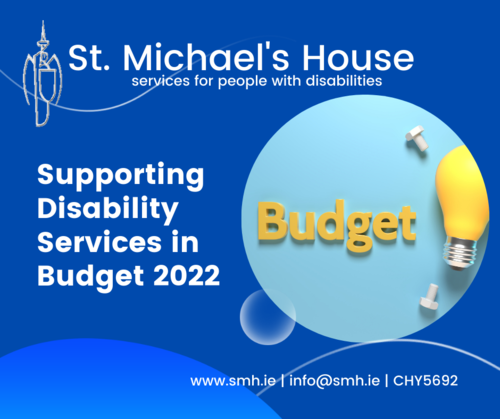St. Michael’s House supports the National Federation of Voluntary Service Providers and the key budget priorities for 2022.
We hope that Budget 2022 considers the very serious levels of unmet needs and respects the required investment to adequately support people with disabilities over the coming years.
The National Federation has published its submission highlighting the key challenges that need to be addressed in the provision of services and supports to people with intellectual disabilities, in Budget 2022.
The Disability Capacity Review to 2032 published by the Department of Health in July 2021 provides a stark picture that reinforces the messages we have provided over successive budget campaigns – showing that many people with disabilities lack the supports that they need and some get no supports at all.
In our budget submission we highlight three crucial areas that need to be addressed in Budget 2022:
- Address urgent unmet needs of people with disabilities and plan for the future – this will require significant investment in 2022 of a minimum of €350million, in line with the Government’s own report
- Coordinate services to put the person at the centre – it is important that the citizen is not left without services and supports when responsibilities fall between Government Departments. We are calling on Government to act in Budget 2022 to ensure clear budget lines in a range of areas that current lack this clarity – including residential supports and housing, transport, guidance counselling in special schools, and supported employment.
- Address the long-term sustainability of services and supports – there are a range of challenges threatening the sustainability of services and supports, including a recruitment and retention crisis, pay inequalities and deficits. We are calling on Government to act in Budget 2022 to safeguard the sustainability of the high-quality, relationship-based supports required to ensure the stability and quality of services to people with intellectual disabilities.
